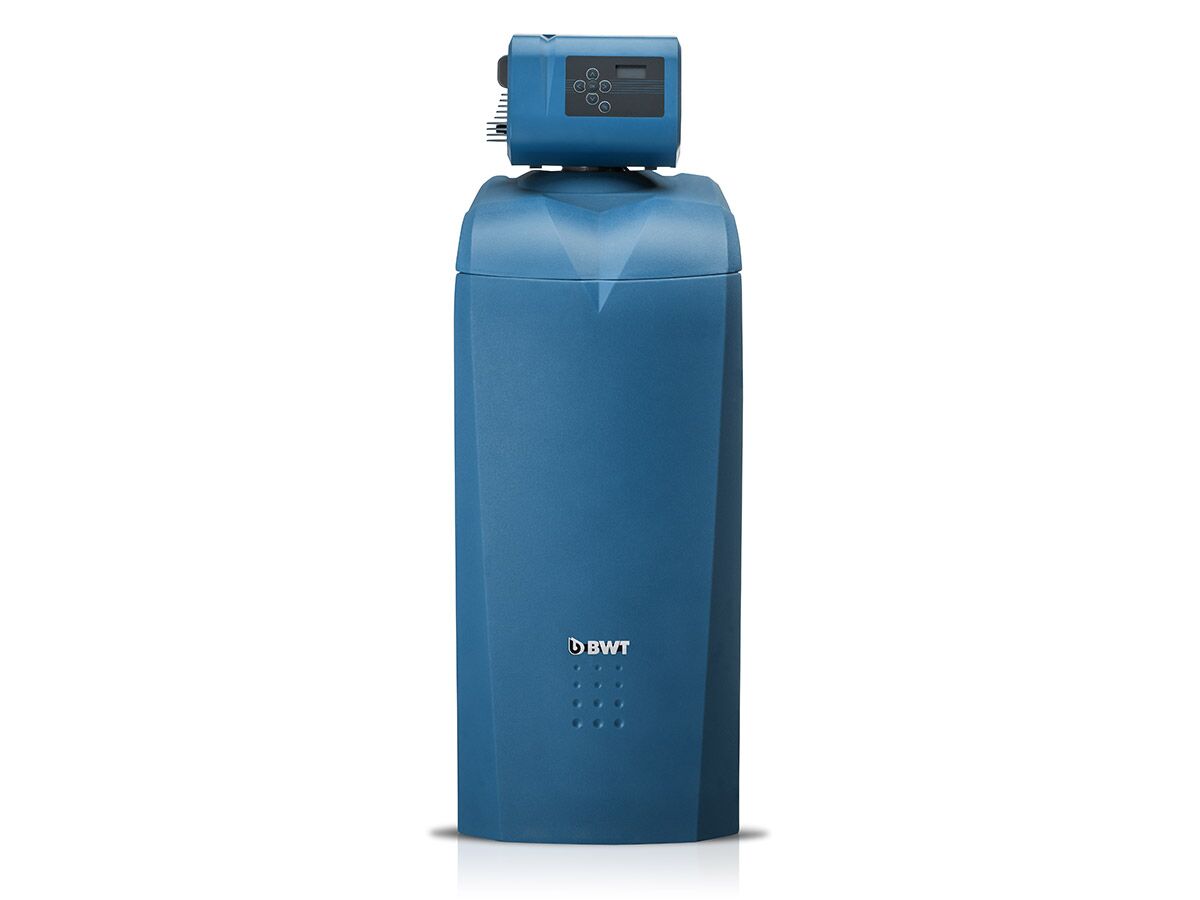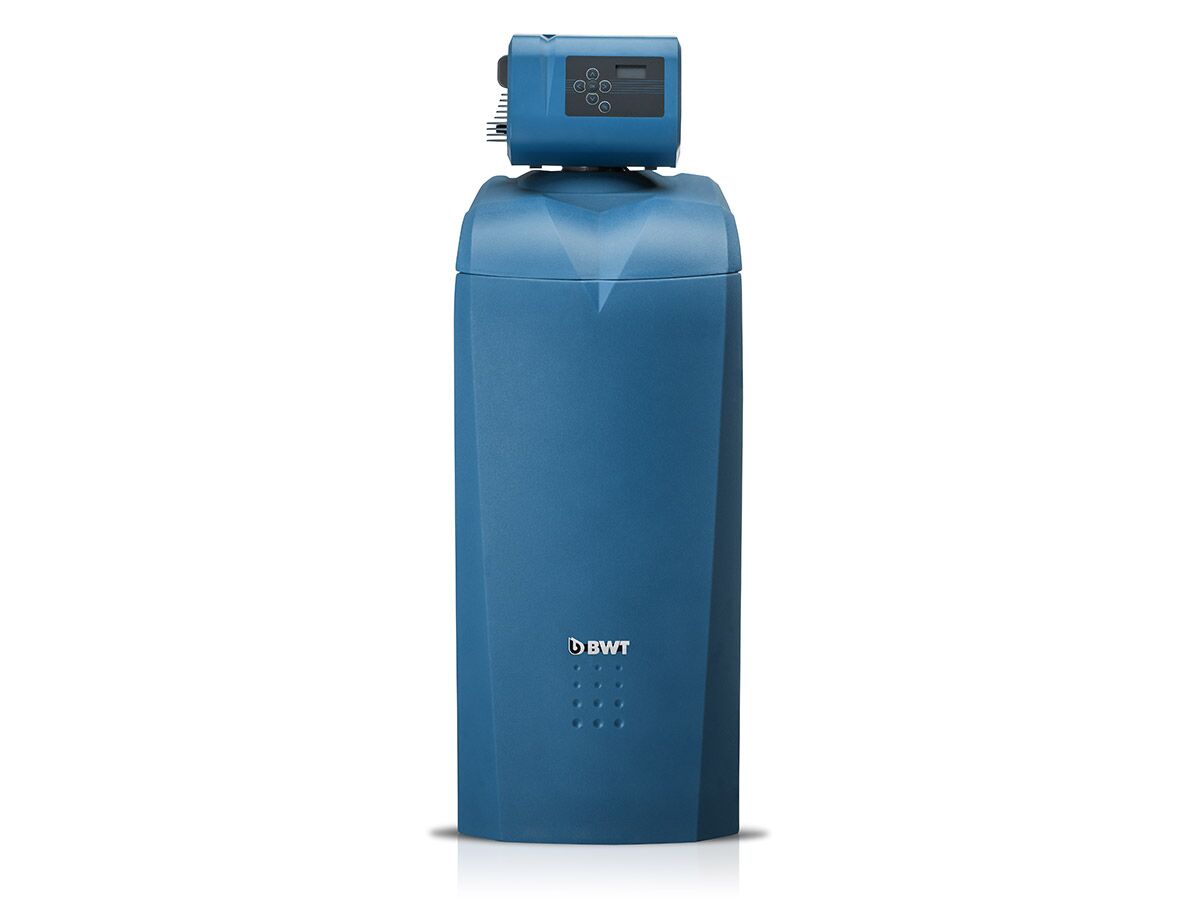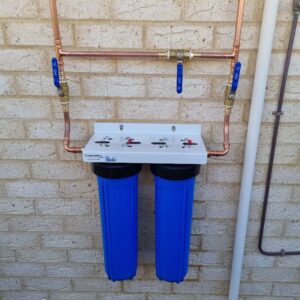Description
Residential Whole House Water Softeners
A residential water softener removes the water ‘hardness’, producing softened water for the whole house. Water is defined as ‘hard’ if it contains a lot of dissolved minerals, particularly calcium and magnesium or other minerals. It is almost inevitable that water which comes into contact with underground beds of limestone, gypsum, dolomite, magnesite – to name but a few of the more common calcium and magnesium bearing minerals – will inevitably make hard water.
As a guide, water of 60 milligrams per litre (mg/L) is considered soft. Above 60 mg/L water becomes progressively more troublesome and above 120 mg/L the water becomes a definite nuisance and a serious hazard to the life of plumbing and all water using equipment. e.g. Hot water cylinders, Coffee machines, Dishwashers, Washing machines to name but a few.
Benefits of using a Whole House Water Softener
Once you install a Whole House Water Softener, you’ll notice these differences around the house:
- Your soap and shampoo will lather better and you’ll use up to 50% less soap.
- Your hair becomes softer, shinier and easier to manage.
- Your skin is left feeling silky smooth and not as dry.
- There will be no soap scum or mineral deposits to clean off sinks, showers, tubs and toilets.
- Clothes come out softer, cleaner, whiter and brighter.
- Soft water increases the life of your clothing, towels and linens.
- Your dishes will clean up more easily and your glassware will sparkle, like never before.
- Improved taste of water, tea and coffee (and it helps keep your kettle/jug clean).
- Dishwashers remain clean and scale free and require less maintenance.
- Extended appliance and equipment life.
The minerals found in hard water can build up on the insides of appliances such as washing machines, dishwashers and water heaters, reducing their working life and decreasing efficiency. Crystal Water residential Water Softeners not only extend their lifespan, but also benefit the environment by reducing waste and conserving the raw materials and energy used in manufacturing.
Hot water heaters can heat softened water more quickly than hard water, improving efficiency by roughly 22 per cent for electric water heaters and 29 per cent for gas-powered units. Improving efficiency with Crystal Water’s water softeners reduces energy consumption, resulting in significantly lower energy bills.
Hard water leaves scaly deposits in plumbing fixtures and pipes, which can corrode and shorten the life of your home’s plumbing system as they build up over time. Reducing mineral deposits with Crystal Water’s water softeners helps eliminate the adverse effects of clogs and corrosion, extending the life of the plumbing system and helping appliances and equipment operate more effectively.
Hard Water has a number of Adverse Effects, including:
- The formation of lime scaling in pipes, water heaters and boilers that cause inefficiency and can lead to permanent damage
- Lowering heat transmission and often causing premature heater failure due to overheating of the metal
- Increasing soap consumption, wasting from 50% to 90% of the soap used, depending on the amount of hardness. It also causes the formation of soap curd, which adheres to cloth fibres, hair, glassware and dishes. Soap curd causes poor results in laundering and may hold pathogenic bacteria
- Hard water also contributes to inefficient and costly operation of water-using appliances. Heated hard water forms a scale of calcium and magnesium minerals (lime scale deposits) that can contribute to the inefficient operation or failure of water using appliances. As a result, it can lead to increased energy costs.
How do you overcome the issues with a Water Softener?
You can combat hard water by running it through a water softener, which eliminates the effects of hard water by extracting dissolved calcium and magnesium minerals from incoming water, thus softening the water for the whole house.
Crystal Water has a range of residential water softeners, which eliminate the effects of hard water by extracting the dissolved calcium and magnesium minerals via ion exchange, producing softened water for the whole house.
Hard water contains calcium and magnesium, whilst water softeners contain resin beads, which hold sodium ions. When hard water passes through the resin beads inside the water softener, the beads attract and hold the calcium and magnesium ions in exchange for sodium. After this ion exchange process, the water leaving the water softener is ‘soft.’
System Specifications
|
Display
|
LED Electronic display water Softener control Valve
|
|
Regeneration mode
|
Intelligent Meter Delay or Timer Delay
|
|
Inlet & Outlet
|
1″ Inlet & Outlet
|
|
Resin Tank
|
08*35
|
| Resin Volume |
25Lt
|
|
Drain
|
1/2”
|
|
Base
|
2-1/2”
|
|
Riser Pipe
|
1.05” OD
|
|
Water Capacity
|
2 m3/H
|
|
Working Pressure
|
0.15-0.6 MPa
|
|
Working Temperature
|
5-50 degrees Celsius
|
|
Working Position
|
Service->Back wash->Brine and slow rinse->Fast rinse->Refill->Service .
|
|
Product Dimensions
|
22×39×110 cm
|
|
Power Required
|
240v 50Hz Outdoor Power Supply
|





Reviews
There are no reviews yet.